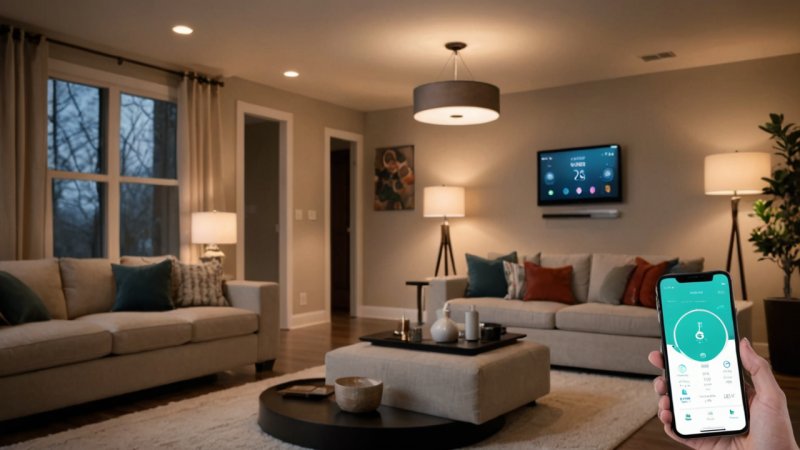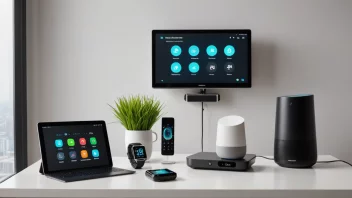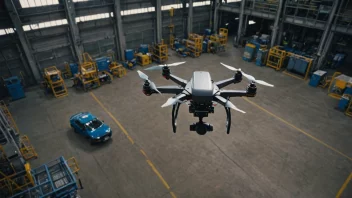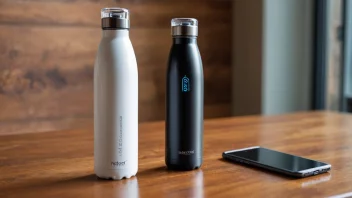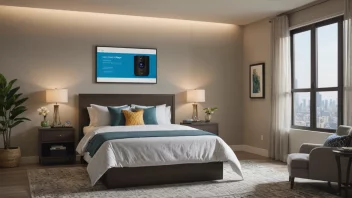In today's fast-paced world, managing a home efficiently is crucial, particularly for busy individuals juggling work, family, and personal commitments. Smart home automation has emerged as a compelling option, promising enhanced convenience, security, and energy efficiency. However, traditional home management methods still hold their ground, offering simplicity and reliability. This article will delve into the pros and cons of smart home automation compared to traditional home management, helping you decide which approach aligns best with your lifestyle.
Understanding Smart Home Automation
Smart home automation refers to the integration of technology into home systems and appliances, allowing for remote control and management via smartphones or other devices. This includes smart lights, thermostats, security cameras, and even kitchen appliances. The primary aim is to streamline daily tasks, improve energy efficiency, and enhance security.
Traditional Home Management
Traditional home management involves manual control of household tasks and appliances without the aid of advanced technologies. This includes using standard light switches, mechanical thermostats, and conventional security systems. While it may lack the high-tech appeal of smart automation, many still appreciate its straightforwardness and reliability.
Pros of Smart Home Automation
- Convenience: Control home devices remotely via smartphone apps, making daily routines easier.
- Energy Efficiency: Smart thermostats and lighting systems can significantly reduce energy consumption, lowering utility bills.
- Enhanced Security: Smart cameras and motion detectors can provide real-time alerts and remote monitoring.
- Customization: Automate routines with schedules and scenes, tailoring your home environment to your preferences.
- Integration: Smart devices can work together, creating a cohesive smart home ecosystem.
Cons of Smart Home Automation
- Cost: Initial setup can be expensive, especially for comprehensive systems.
- Complexity: May require a learning curve for those unfamiliar with technology.
- Dependence on Internet: Many smart devices rely on Wi-Fi, making them vulnerable to connectivity issues.
- Security Risks: Potential for hacking and privacy concerns with connected devices.
- Compatibility: Not all devices work seamlessly together, leading to integration challenges.
Pros of Traditional Home Management
- Simplicity: Easy to understand and operate without the need for technology.
- Reliability: Less prone to outages or malfunctions compared to smart systems.
- Cost-Effective: No need for smart devices or subscriptions; lower initial investment.
- Familiarity: Many people are comfortable with traditional methods and may find them more trustworthy.
- Less Maintenance: Fewer components mean less upkeep and fewer potential failures.
Cons of Traditional Home Management
- Lack of Convenience: Manual controls can be cumbersome, especially for multitasking individuals.
- Energy Inefficiency: Without smart technology, optimizing energy usage may be challenging.
- Limited Security: Traditional locks and alarms may not offer the same level of monitoring and alerts as smart systems.
- Rigid Control: Harder to create customized routines compared to smart automation.
- Time-Consuming: More time spent on manual tasks, reducing overall efficiency.
Key Differences Between Smart Home Automation and Traditional Home Management
| Feature | Smart Home Automation | Traditional Home Management |
|---|---|---|
| Control Method | Remote via apps | Manual switches |
| Cost | Higher initial investment | Lower initial costs |
| Energy Management | Optimized & automatic | Manual adjustments |
| Security | Real-time monitoring | Basic security systems |
| Ease of Use | Requires tech knowledge | Intuitive and straightforward |
Conclusion
Both smart home automation and traditional home management have their unique advantages and disadvantages. Smart home automation offers unparalleled convenience and efficiency but may come with a steeper learning curve and initial costs. On the other hand, traditional home management is straightforward and reliable, making it an appealing choice for those who prefer simplicity. Ultimately, the decision between these two approaches depends on your lifestyle, budget, and comfort level with technology. If you're looking for maximum efficiency and don't mind investing in technology, smart home automation could greatly enhance your daily life. However, if you value ease of use and minimal maintenance, sticking with traditional methods may be the better option for you.
